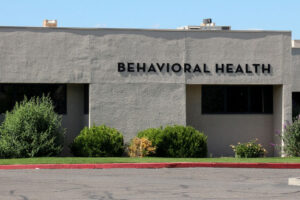Written by Dr. Emily R. Thornton, PhD, LCADC , Last Updated: November 10, 2025
Certified addiction counselors are licensed professionals who provide substance use disorder assessment, treatment planning, and counseling under clinical supervision. They typically need a bachelor's degree, 2,000+ supervised practice hours, specialized SUD training, and must pass a state certification exam. The national median salary is $59,190 as of May 2024.
Table of Contents
- What Is a Fully Certified Alcohol and Drug Counselor?
- What You'll Do Daily as a Certified Addiction Counselor
- What Exactly Does a Certified Alcohol & Drug Counselor Do?
- Where Certified Addiction Counselors Work Helps Define Their Specialization and Tasks
- How Much Is the Typical Certified Alcohol & Drug Counselor Salary?
- How You Can Become a Certified Addiction Counselor
- Your Career Progression Path From Certified to Clinical Practice
- Education Costs and Return on Investment
- State-by-State: Degree Requirements for Certified Addiction Counselors in Your State
- Frequently Asked Questions

The mainstay of the addiction treatment workforce is the certified substance use disorder (SUD) counselor. They're more commonly referred to by the certification title their state uses.
Across all 50 states, the titles you'll find at this level are most commonly:
- Certified Alcohol & Drug Counselor I
- Licensed Addiction Counselor
- Chemical Dependency Counselor I
- Certified Addiction Professional
Forty-six states offer certification under one of these titles or a very similar one, more than for any other kind of state-certified substance abuse worker. With challenging, yet achievable, standards for training and experience, certified alcohol & drug counselors hit the sweet spot: you can get qualified relatively quickly, yet bring a high level of expertise to the job.
When people in any phase of chemical dependency need someone to guide them out of the darkness of addiction, certified alcohol and drug counselors are there to lead the way.
What Is a Fully Certified Alcohol and Drug Counselor?

Certified alcohol and drug counselor is used as a blanket term for professionals working at any level of addiction counseling, and a specific, defined position within that profession. That can make it tough to sort out precisely what the role entails, how to qualify for it, and what exactly they do from day to day.
SAMHSA, the Substance Abuse and Mental Health Services Administration, defines the role of a certified alcohol & drug counselor as one that requires at least a bachelor's degree and that involves providing assessment and treatment services under the general supervision of a clinical addiction counselor.
They work under many different titles across the country. What they almost always have in common is that authority-granting word that precedes the title, whether it's certified, credentialed, or licensed.
Substance use disorder (SUD) has become the preferred term for this kind of condition, but job and license titles may take some time to catch up.
It's really the level of license they hold that separates the role of certified addiction counselor from the generic use of the term to describe anyone who offers substance abuse therapy. Everyone from psychologists and social workers to substance abuse technicians can be loosely lumped into the broad category of substance abuse counselors. But someone who holds the Certified Alcohol and Drug Counselor credential has specific responsibilities and a well-defined scope of practice within the wider field of addiction therapy.
What You'll Do Daily as a Certified Addiction Counselor
Your day-to-day work as a certified addiction counselor varies significantly by setting, but certain activities form the core of the role. Understanding these daily realities helps you prepare for the demands and rewards of this career.
Morning: Assessment and Planning
Many counselors start their day reviewing case notes and preparing for client sessions. You might conduct intake assessments for new clients, screening them for substance use severity, mental health conditions, and immediate safety concerns. This involves asking detailed questions about substance use history, family dynamics, trauma experiences, and current support systems.
In a residential treatment facility, you'd participate in morning staff meetings to discuss client progress, potential discharges, and any overnight incidents. Hospital-based counselors often round with medical staff to evaluate patients admitted with substance-related complications.
Midday: Direct Counseling and Group Facilitation
The heart of your work happens in individual and group counseling sessions. You might facilitate a cognitive-behavioral therapy group for six clients working on identifying triggers and developing coping strategies. Between group sessions, you conduct one-on-one counseling using motivational interviewing techniques to help a client who is ambivalent about treatment find their own reasons for change.
You're documenting everything. Treatment plans require detailed notes on client progress toward goals, setbacks encountered, and interventions used. This paperwork is critical for insurance reimbursement, legal compliance, and clinical continuity.
Afternoon: Coordination and Crisis Response
Much of the afternoon involves coordinating care with other providers. You might call a client's primary care physician about medication-assisted treatment options, connect a client with housing resources, or arrange for a family therapy session. You're constantly networking with social services, legal systems, healthcare providers, and community support organizations.
Crisis intervention happens without warning. A client in early recovery is calling, threatening relapse. Another client's drug screen comes back positive. Someone's housing falls through, putting their recovery at risk. You drop what you're doing to provide immediate support, safety planning, and resource connection.
Late Day: Supervision and Professional Development
Before leaving, you meet with your clinical supervisor to review challenging cases, discuss treatment approaches, and get guidance on ethical dilemmas. These supervision hours are required to maintain your license, and are invaluable for professional growth.
You might also squeeze in continuing education webinars, update treatment plans for tomorrow's review, or return calls from family members seeking information about their loved one's progress (with appropriate consent, of course).
The Emotional Reality
This work is emotionally demanding. You celebrate genuine victories: a client reaching 30 days sober, a family reunification, or someone landing their first job in years. You also face heartbreak: relapses, dropouts, and the occasional tragedy. Self-care and maintaining professional boundaries become survival skills, not luxuries.
What Exactly Does a Certified Alcohol & Drug Counselor Do?

The responsibilities within that scope of practice fall into eight categories according to SAMHSA's TAP21 guidelines. These eight dimensions of practice are standard to almost everyone working at any level in substance abuse therapy. The specific tasks that a certified addiction counselor takes on within those eight dimensions are what make this position different from the others.
- Clinical Evaluation - Certified alcohol & drug counselors are authorized to conduct screening, brief interventions, and referrals, including diagnostic impressions and assessments. That doesn't include full diagnosis authority, which typically falls within the domain of the Certified Clinical Alcohol & Drug Counselor credential.
- Treatment Planning - Counselors can develop plans for initial, ongoing, and relapse-prevention treatment, though supervisors must sign them off.
- Referral, Service Coordination, and Documentation - These three areas cover the paperwork and coordination work that counselors perform with other human services agencies. It can include case management for patients as well, but notes will be checked and decisions ultimately made by clinical counselors.
- Counseling - Counselors are authorized to provide direct counseling to patients and groups of patients using a variety of techniques that offer coping skills, information, and methods that support recovery. Clinical supervisors provide their overall approach and guidance.
- Client, Family, and Community Education - Building positive support networks and giving people close to patients tools to help is also part of the role.
- Professional and Ethical Responsibilities - It's the responsibility of counselors to maintain patient confidentiality and uphold the highest professional standards in counseling.
All of these have to be performed under the clinical supervision of a senior counselor. That doesn't mean direct supervision, though. Most certified alcohol & drug counselors do their work one-on-one or in small groups with patients. They consult with supervisors to ensure their course of treatment is appropriate or to get advice on complex situations.
Those are the dry, clinical definitions of what it takes to become a certified addiction counselor. When you dive down into the actual job descriptions, you find a much more involved, more intense position waiting for you.
A Deeper Look at Certified Addiction Counselor Job Descriptions
Although people often gravitate toward positions with higher credentials and more clinical independence, there's a unique benefit to working as a certified addiction counselor: you spend more time working directly with patients and less time performing administrative and clinical supervision.
Addiction counselors at this level spend a lot of time talking to people. Screening requires observation, asking questions, and understanding what's normal and what isn't. Similarly, counseling itself is often structured around motivational interviewing or cognitive-behavioral therapy, both of which are heavy on interaction.
There's plenty of paperwork, both in treatment planning and case documentation. That goes hand in hand with networking and making referrals. Most patients have a ton of different support needs, and certified addiction counselors are often the people who line up help so they can be in the right state and right environment for recovery.
Certified addiction counselors may oversee technicians and work with peer recovery specialists, but otherwise, they're mainly engaged in hands-on interventions and therapy with the people who need it most. That's precisely the kind of stuff that makes the most significant difference in SUD counseling. It's also exactly what people are usually looking for when they get into this field.
What Are Substance Abuse and Behavioral Disorder Counselors?

With the likelihood of co-occurring disorders in substance use disorder cases, it's rare just to be treating a single diagnosis for addiction. The chicken-and-egg nature of disorders like anxiety and depression crossed over with substance abuse can make it tough to put a finger on a core issue. Is the patient self-medicating for pre-existing mental health problems? Or are those problems symptoms of abuse of dangerous substances?
The lines are similarly blurry when it comes to treatments. The roots of addiction can be behavioral as well as chemical, so SUD counselors often integrate standard behavioral therapies in their treatment plans. Therapeutic methods used in garden-variety behavioral and mental health counseling are identical to what SUD counselors use:
- Cognitive behavioral therapy
- Dialectical behavior therapy
- Contingency management
- Extinction
- Behavior modeling
- Token economics
So in some practice settings, there may be few firm barriers between substance abuse counseling and behavioral health counseling. You find this reflected in the official Bureau of Labor Statistics employment category, which combines substance abuse, behavioral disorder, and mental health counseling.
You'll also see more and more SUD counselor job listings that specify experience in either substance abuse counseling or more general behavioral health services. And many of those job listings are posted by clinics that offer both kinds of services, effectively opening their doors to anyone in crisis. These are jobs where helping people is the priority, and definitions can take a back seat.
Where Certified Addiction Counselors Work Helps Define Their Specialization and Tasks

A lot of the actual day-to-day experience you have as your employer dictates that you have a certified alcohol & drug counselor. Accredited addiction counselors are authorized to work in primary care or licensed treatment facilities, but in many cases, those will have a specific focus:
- Criminal justice counseling
- Teen or youth SUD counseling
- Homeless outreach
- Gender or culture-based population counseling
- Particular types of addiction, such as alcohol or opioid treatment
So, who you're interacting with—and whether it's in an individual or group setting—is usually determined by where you're working.
The major employers of certified alcohol & drug counselors are often state agencies, nonprofit organizations, or private healthcare and addiction treatment companies.
So while your duties as a counselor will always fall somewhere in those eight dimensions of practice, how you spend your days will revolve around the kind of disorders and the population you treat.
You could spend most of your time behind a desk, offering one-to-one therapy to relatively well-off suburban youth with drinking problems. You might be running group therapy sessions in a privately run prison facility. You could be in a hospital, consulting with medical staff and evaluating patients for signs of substance use disorders. Or maybe you're in charge of overseeing a residential treatment facility or halfway house and have to be ready for the phone to ring, jumping into crisis management mode.
Unfortunately, there are many opportunities available in every corner of the country. Where, and how, you want to take up the fight is up to you.
How Much Is the Typical Certified Alcohol & Drug Counselor Salary?

Sitting right toward the middle of all addiction counseling jobs, you can expect that certified addiction counselors will come in right around the national average for salary levels. As of May 2024, according to the Bureau of Labor Statistics (BLS), the national median salary was $59,190 per year, with a mean of $65,100.
Like every other kind of job, those numbers revolve around things like the industry you work in, the part of the country where you're practicing, and the amount of experience you have under your belt.
For example, here are the median annual salaries in the top industries employing certified alcohol & drug counselors as of May 2024:
- Hospitals - $61,870
- Offices of other health practitioners - $58,260
- Outpatient mental health and substance abuse centers - $55,940
- Individual and family services - $54,530
- Residential mental health and substance abuse facilities - $51,920
Location matters quite a lot, too, as you can see from some of the median levels from different major urban areas of the country (May 2024):
- New York: $73,180
- Los Angeles: $67,390
- Chicago: $59,570
- Dallas: $59,070
- Miami: $59,360
- Seattle: $67,060
- Atlanta: $58,990
- Phoenix: $63,830
Substance use disorders aren't just an urban problem anymore, of course. Many SUD counseling jobs are found in rural America. Lower living costs often offset lower pay rates in these areas.
With more experience and ongoing training, it's realistic for substance abuse counselors to aim for the top tier of salary in the counseling sector. For May 2024, the 90th percentile earned more than $98,210 per year nationally. Expect more responsibilities and significant administrative duties as you move up that ladder.
For detailed salary breakdowns by state and city, explore our comprehensive substance abuse counselor salary guide.
How You Can Become a Certified Addiction Counselor

This is a position defined by licensing. Each state that has a SUD counseling role has its own specific requirements for becoming authorized to perform those services.
Even though it's the most common role in addiction counseling, each state has its own title and qualifications. That means differences in:
- Level of degree required - Although a bachelor's degree is the standard for this level of practice, there's significant variability across states, with some allowing associate degrees to qualify and others requiring no degree at all.
- Number of education hours and on which topics you will need - Usually included with SUD counseling degrees, but also available through certificates and other training programs, anywhere from 150 to 450 hours of training in addiction assessment, therapy, and ethics topics. Specifics vary from state to state.
- Number of practice hours necessary - The guidelines for certified alcohol & drug counselor experiential training call for a minimum of 2,000 hours of supervised work experience at the Bachelor's level, with at least 600 of those hours including direct client contact. In practice, this can be anywhere from 2,000 to 10,000 hours. The number of hours required in direct patient contact can vary as well. In many states, degrees beyond the minimum requirement may count toward reducing the required practice hours.
- Number of supervision hours required - There are also various requirements for the number of hours of supervision you must receive. While all of your practice is supervised in a general sense by a senior certified addiction counselor, these are hours that you're specifically being mentored and guided by that counselor. States require between 96 and 350 hours of supervision.
- The standardized tests accepted: Every state requires passing a standardized test to become a certified addiction counselor, but there's no single standardized test. Most states rely on the International Certification & Reciprocity Consortium's Alcohol and Drug Counselor (ADC) exam or NAADAC's National Certified Addiction Counselor I or II exams. Some accept either. And others still have their own homegrown exam. Also, some states you to pass topassa separate administrative or jurisprudence examination covering their state and regulationslations, n addition to counseling knowledge tests.
The most important differences are in the degree level and the amount of experience required. For complete state-by-state requirements, visit our detailed guide to becoming a substance abuse counselor.
Getting the Right Degree To Qualify as a Certified Addiction Counselor in Your State
The model for qualification as a certified addiction counselor calls for a bachelor's degree in SUD counseling or a closely related psychology or human services major. As you've seen, that's not universal. But what is needed in every state is proof you have the knowledge and skills required to work with sensitive, traumatized, and vulnerable populations experiencing addiction, and a college degree is almost always the best way to get that.
That means a degree like a Bachelor's Degree in Substance Abuse Counseling is your path to becoming a certified alcohol & drug counselor.
Those programs almost always include the required classes to meet the state's certification standards. On top of that, they deliver an excellent liberal arts background that helps develop critical thinking and problem-solving in any profession. And substance abuse counseling is a job that needs more problem-solving than most.
You'll also find that most states accept related degrees, like a Bachelor of Science in Psychology or a Bachelor of Arts in Social Work. These may not have courses that meet the educational hour requirements for a license, though. You'll have to catch up through a Certificate in Substance Abuse Counseling or similar program.
Of course, professionals who are already licensed in fields like counseling, marriage and family therapy, or psychology may have other options for adding on SUD counseling credentials. In some states, they may not even require a separate license. So it's essential to check with your state licensing or certification board for the details.
Getting the Hands-on Experience To Handle Any Addiction Issue

Turning classroom theory into real-world expertise takes time and practice. So you'll spend several months to several years building up hours working with real patients in closely supervised settings to help you get it right.
In a degree program, you'll get a head start on building those hours. Bachelor's degrees routinely include real-world placements through practicum or internship courses. These put you in active treatment facilities, where you work directly with patients as experienced clinicians guide you through assessment and treatment.
College-driven experiential training works to your benefit in many states beyond just the actual hours you build.
Often, if you have a degree above the minimum, you can also shave off some of the practice hours that are required for a license. For example, while Alaska doesn't require a degree for a certified addiction counselor license, your practice hour requirement is cut in half if you have one.
After graduation, you'll have to find other ways of accumulating your practice hours. Because this is how the licensing system works, you'll find many employers who are willing to hire you before you're certified to help you build those hours.
In some cases, you'll need a lower level of license to do that work. In other cases, a certified alcohol & drug counselor license itself will be the credential you need to get as you build hours toward an even higher level of practice.
Learn more about meeting your supervised experience requirements for certification.
Your Career Progression Path From Certified to Clinical Practice
Understanding the career ladder in addiction counseling helps you plan your long-term professional development. The certified addiction counselor credential is often a stepping stone, not a final destination.
Typical Career Timeline
Years 0-4: Entry and Certification
Most people start by earning a bachelor's degree (4 years) while completing initial practicum hours. Immediately after graduation, you enter supervised practice positions, accumulating the 2,000+ hours required for certification while earning an entry-level salary (typically $39,000-$48,000 annually). This supervised period usually takes 1-2 years of full-time work.
Years 4-7: Certified Practice and Skill Development
Once certified, you work independently (under general supervision) for several years, building expertise in specific populations or treatment modalities. During this time, many counselors pursue additional certifications in areas like:
- Co-occurring disorders treatment
- Medication-assisted treatment (MAT)
- Adolescent addiction counseling
- Criminal justice populations
- Specific therapeutic approaches (DBT, EMDR, trauma-informed care)
Salary during this period typically ranges from $48,000 to $65,000, depending on location and setting.
Years 7-10: Clinical Licensure
Many counselors pursue clinical-level licensure, which requires a master's degree and additional supervised hours (often 2,000-4,000 more). Clinical licensure grants independent practice authority, including the ability to diagnose, create treatment plans without oversight, and supervise other counselors.
Clinical counselors earn significantly more (median $68,000-$85,000+) and have greater career flexibility, including private practice options.
Years 10+: Advanced Practice and Leadership
Experienced clinical counselors often move into:
- Clinical supervision positions (training the next generation)
- Program director or administrator roles
- Private practice ownership
- Consultant or trainer positions
- Doctoral-level practice and research
Leadership positions can command $80,000-$100,000+ annually.
Accelerated Paths and Alternative Routes
Some counselors fast-track their career by:
- Entering the field with a master's degree (skipping associate or lower-level credentials)
- Pursuing accelerated degree programs (completing bachelor's in 3 years or master's in 12-18 months)
- Working in high-need areas that offer student loan forgiveness or higher starting salaries
- Earning national certifications (NAADAC or IC&RC) for greater mobility and credential recognition
Veterans and individuals in recovery sometimes enter through alternative pathways, starting as peer recovery specialists and working up the ladder while earning degrees part-time.
Education Costs and Return on Investment
Understanding the financial investment required to become a certified addiction counselor helps you make informed decisions about degree programs and financing strategies.
Typical Education Costs
High School Diploma + Certificate Programs
In states that allow certificate-only entry (12-18 months):
- Community college certificates: $3,000-$8,000 total
- Private program certificates: $8,000-$15,000 total
- Total time to certification: 2-3 years (including supervised hours)
Associate Degree Pathway
For entry-level positions in some states (2 years):
- Community college: $6,000-$12,000 total tuition
- Online programs: $15,000-$25,000 total
- Total time to certification: 3-4 years (including supervised hours)
Bachelor's Degree Pathway (Most Common)
Standard route to certified addiction counselor (4 years):
- Public in-state university: $40,000-$60,000 total tuition
- Public out-of-state: $80,000-$120,000 total
- Private university: $120,000-$200,000 total
- Online programs: $30,000-$80,000 total
- Total time to certification: 5-6 years (including supervised hours)
Additional Costs
- Certification exam fees: $200-$400
- Initial license application: $100-$300
- Background checks and fingerprinting: $50-$150
- Annual license renewal: $75-$200 per year
- Continuing education (20-40 hours annually): $300-$600 per year
- Professional liability insurance: $200-$400 annually
Return on Investment Analysis
Let's compare investment versus earning potential over a 10-year career:
Bachelor's Degree Investment Example:
Total education cost: $50,000 (public in-state Bachelor's)
YeBachelor'stification: 5-6 years
Starting salary (certified): $48,000
Five-year certified salary (average): $54,000
Ten-year career earnings: $540,000-$650,000
Net return over 10 years: $490,000-$600,000
Certificate-Only Investment Example (Where Allowed):
Total education cost: $8,000 (certificate program)
Years to certification: 2-3 years
Starting salary: $39,000
Five-year average: $45,000
Ten-year career earnings: $420,000-$480,000
Net return over 10 years: $412,000-$472,000
Financial Aid and Cost-Reduction Strategies
Many students reduce their out-of-pocket costs through:
- Federal financial aid - Pell Grants up to $7,395 annually for eligible students
- State grants - Many states offer grants for students entering behavioral health fields
- Employer tuition assistance - Treatment facilities often provide tuition reimbursement for employees pursuing addiction counseling degrees
- Scholarships - Field-specific scholarships from NAADAC, state associations, and individual programs
- Loan forgiveness programs - Public Service Loan Forgiveness (PSLF) for nonprofit or government employment (forgives remaining federal loans after 10 years)
- NHSC programs - National Health Service Corps offers loan repayment for counselors working in underserved areas
Working while studying significantly reduces the net cost. Many students work as substance abuse technicians or peer recovery specialists while completing their degrees, earning income, and building required supervised hours simultaneously.
Is It Worth It?
The financial return is solid but not spectacular. You won't get rich in this field. However, most certified addiction counselors report high job satisfaction, work-life balance, and the intrinsic reward of helping people in crisis. The field offers recession-resistant employment, strong job growth (18% projected through 2032), and opportunities in every community.
For many, the real ROI is measured in lives changed, not dollars earned.
State-by-State: Degree Requirements for Certified Addiction Counselors in Your State

Whether you genuinely need a bachelor's degree in your state or can get in with an undergraduate certificate and a high school diploma represents a massive spread in state-level education requirements. So we've listed the certified addiction counselor job titles and degree requirements for every state here.
States that don't have an equivalent license with the exact scope of practice show NA. And while a degree isn't mandatory in some states, those that offer a reduction in practice-hour requirements for applicants with higher-level degrees are marked with an asterisk.
Important: State licensing requirements change frequently. The information below reflects requirements as of the last verification date. Always verify current requirements with your state's licensing board before making educational decisions. Visit our state certification guide for links to each state's licensing authority.
State | Titles | Degrees |
Chemical Dependency Counselor I | None* | |
Qualified Substance Abuse Professional II | Bachelor | |
Alcohol & Drug Counselor/Licensed Associate Alcoholism & Drug Abuse Counselor | Degree Level not Specified/Bachelor | |
Certified Alcohol & Drug Abuse Counselor/Licensed Associate Certified alcohol & drug counselor | Bachelor/Bachelor | |
Certified Alcohol Drug Counselor II | Bachelor | |
Certified Addiction Counselor III | Bachelor | |
Certified Alcohol & Drug Counselor | Degree Level not Specified | |
Certified Addiction Counselor I/Certified Alcohol & Drug Counselor | Associate/Degree Level not Specified | |
Certified Alcohol & Drug Counselor | Associate | |
Certified Addiction Professional | Bachelor | |
Certified Addiction Counselor I/Certified Alcohol & Drug Counselor I | High school | |
NA | NA | |
Certified Alcohol & Drug Counselor | High school | |
Certified Alcohol-Drug Counselor | High school | |
Certified Alcohol & Drug Counselor | High school | |
Licensed Addiction Counselor/Certified Alcoholism and Drug Abuse Counselor II/Indiana Certified Addiction Counselor Level II | Bachelor/None/Bachelor/Bachelor | |
Licensed Addiction Counselor | Bachelor | |
Certified Alcohol & Drug Counselor | Bachelor | |
Certified Addiction Counselor | Bachelor | |
Certified Alcohol & Drug Counselor | High school | |
Certified Associate Counselor-Alcohol & Drug/Certified Chemical Dependency Counselor | Bachelor/Bachelor | |
Certified Alcohol & Drug Counselor | High school | |
Certified Alcohol & Drug Counselor | Degree Level not Specified | |
NA | NA | |
Missouri Associate Alcohol Drug Counselor II/Registered Alcohol Drug Counselor-Provisional | High school/High school/Bachelor | |
Certified Alcohol & Drug Counselor I | Bachelor | |
NA | NA | |
Certified Alcohol and Drug Counselor | High school | |
Licensed Addiction Counselor | Bachelor | |
Provisionally Licensed Alcohol & Drug Counselor | High school | |
NA | NA | |
Certified Alcohol & Drug Counselor | High school | |
NA | NA | |
Certified Alcohol & Drug Abuse Counselor | Bachelor | |
Advanced Credentialed Alcoholism & Substance Abuse Counselor / Credentialed Alcoholism & Substance Abuse Counselor II | Bachelor/Associate | |
Licensed Chemical Dependency Counselor II | Associate | |
Certified Alcohol & Drug Counselor | Bachelor | |
Certified Alcohol Drug Counselor II | Bachelor | |
Certified Associate Addiction Counselor | High school | |
Certified Alcohol & Drug Counselor | High school | |
Certified Addictions Counselor I | Bachelor | |
Certified Addiction Counselor | High school | |
Level I Licensed Alcohol & Drug Abuse Counselor | High school | |
Alcohol & Drug Counselor | High school | |
Alcohol & Drug Counselor/Certified Advanced Substance Use Disorder Counselor | High school/Bachelor's | |
ified Alcohol & Drug Counselor/Certified Substance Abuse Counselor | Bachelor/Bachelor | |
Certified Alcohol & Drug Abuse Counselor | Bachelor | |
NA | NA | |
Substance Abuse Counselor | Degree Level not Specified | |
Alcohol & Drug Counselor | High school | |
Certified Addictions Practitioner | Bachelor |
You'll notice that some states have multiple credentials for certified addiction counselors. That's because some states have various tracks to becoming licensed.
In some cases, a state agency directly issues licenses and maintains professional standards. In other cases, they delegate that authority to an independent professional board, which issues a certification. And some states have both. This can lead to different titles and even qualifications, depending on the career path.
Certified Addiction Counselors Sometimes Come by Other Paths From Other Human Services and Counseling Professions

There are also sometimes alternate routes to getting a certified addiction counselor credential for professionals who are already licensed in other human services or psychology jobs. In some cases, this also results in a different title and standards, since they're coming in with a specific background. Other times, they may get the same license, but with reduced practice hours or educational requirements.
You'll also notice that in some states, a license at this level carries a provisional or associate label (even though associate alcohol & drug counselor is a different role), or has a level I or II. That's because substance abuse counseling is a ladder that's unique from state to state. The kind of practice authority that defines these licenses, in some cases, is just a step up or down from other credential levels in those states.
Earning a Professional Certification in Addiction Counseling Can Boost Employment Options
It's not a requirement, but earning a national certification in substance use disorder counseling can sometimes offer a quick path to licensure as a certified addiction counselor, too. This is particularly true if you're coming in from another state where you have already become certified. Two organizations offer this kind of certification, although each works a little bit differently.
NAADAC, The Association for Addiction Professionals, offers the National Certified Addiction Counselor Level II (NCAC II) credential for substance abuse counselors. This corresponds to the NCAC II exam, the same one that many states use for licensing, but also carries additional, stiffer qualifications than many states require:
- Education - A bachelor's degree in addiction counseling or related counseling fields is needed, even if your state doesn't mandate it
- License - You already have to hold a license as an SUD or other professional counselor
- Experience - You need at least 3 years or 6,000 hours of supervised experience on the job
- Training - At least 450 contact hours of OSUD-specific training are required, with at least six hours each of HIV/pathogen training and ethics training
The other organization, as you might have guessed, is the International Certification & Reciprocity Consortium, which is behind the other most common qualifying test, the ADC. The Certified Alcohol & Drug Counselor credential, however, is awarded only by individual state member boards. They use the same minimum qualifications and the IC&R test, but set their own standards. As with the NCAC II, the ADC is widely accepted across states.
These major certifications are a mark of professionalism in the field. In states where they aren't already required, they set you apart. It can give you an edge in:
- Getting hired at the top organizations in SUD treatment
- Negotiating higher salary rates
- Getting to better outcomes for your patients
Both state and national certifications require ongoing continuing education. So you'll find that your skills continue to expand over time, perhaps leading to higher-level degrees and licenses that offer more opportunities for independent practice.
Frequently Asked Questions
How long does it take to become a certified addiction counselor?
The typical timeline is 5-6 years total. This includes earning a bachelor's degree (4 years) and completing the required supervised practice hours (1-2 years of full-time work). In states that accept certificates or associate degrees, you can become certified in as little as 2-3 years. The exact timeline depends on your state's requirements, whether you attend school full-time or part-time, and how quickly you accumulate supervised hours.
What's the difference between a certified addiction counselor and a clinical addiction counselor?
Certified addiction counselors work under clinical supervision and need approval for treatment plans and major clinical decisions. Clinical addiction counselors (typically requiring a master's degree) have independent practice authority, can diagnose substance use disorders, create treatment plans without oversight, and supervise other counselors. Clinical counselors also earn higher salaries (typically $10,000-$25,000 more annually) and can open private practices.
Can I become a certified addiction counselor without a bachelor's degree?
Yes, in many states. Approximately 20 states allow entry with just a high school diploma plus specialized training certificates. Another 5-6 states accept associate degrees as the minimum credential. Check your specific state requirements, as they vary widely. Even in states that don't require a bachelor's, having one often reduces the number of supervised practice hours you need to complete.
Do I need to be in recovery myself to become a certified addiction counselor?
No. While personal recovery experience can provide valuable insight and empathy, it's not required to become a certified addiction counselor. Many successful counselors have no personal history with addiction. What matters most is your ability to empathize with clients, understand the science of addiction, master evidence-based treatment approaches, and maintain professional boundaries.
Will my certification transfer if I move to another state?
It depends. If you hold an IC&RC or NAADAC national certification, many states will recognize it and grant you reciprocal licensure with minimal additional requirements. If you only have a state-specific license, you'll likely need to meet your new state's requirements, which may include further education, practice hours, or examinations. Some states have reciprocity agreements that make transfers easier. Always check with your destination state's licensing board before relocating.
What kind of clients will I work with as a certified addiction counselor?
That depends entirely on your workplace. You might work with court-mandated clients in criminal justice settings, adolescents in school-based programs, homeless populations in outreach programs, pregnant women in specialized clinics, veterans in VA facilities, or general adult populations in residential or outpatient treatment centers. Most counselors develop specialties over time based on their interests and the populations they serve effectively.
How much does it cost to maintain my certification?
Annual costs typically include license renewal fees ($75-$200), continuing education requirements ($300-$600 for 20-40 hours), and professional liability insurance ($200-$400). Total annual maintenance costs usually range from $575 to $1,200. Some employers cover these costs as part of your benefits package.
Can I work as a certified addiction counselor while finishing my degree?
In some states, yes. Many states offer provisional or trainee licenses that allow you to work in addiction counseling under supervision while completing your education. This lets you gain experience and earn income while finishing your degree, and those supervised hours typically count toward your certification requirements. Check your state's specific provisions for students and trainees.
Get Started in a Career That Is Part of the Bigger Solution to America's Social Challenges

According to the BLS, this profession is set to grow by 18 percent between 2022 and 2032. As the country starts to realize how many social issues are a fallout from substance use disorders, American know-how and a can-do attitude will see both public and private organizations stepping up to deal with them.
Substance use disorder counselors are going to be the most significant part of the turnaround that's coming. New funding is on the way, courtesy of a $28 million grant from the Biden administration aimed squarely at expanding SUD treatment services.
Getting the proper education, experience, and license to be part of that workforce is your first step toward being part of the solution. It's also often the first step toward even more critical roles in SUD treatment.
Key Takeaways
- Certified addiction counselors are the backbone of the SUD treatment workforce, providing assessment, counseling, and treatment planning under clinical supervision in 46 states.
- Requirements vary significantly by state, from high school plus certificate to bachelor's degree, 2,000-10,000 supervised practice hours, and standardized certification exams required.
- The national median salary is $59,190 (May 2024), ranging from $39,090 at the 10th percentile to $98,210 at the 90th percentile, with significant variation by location and work setting.
- Most counselors complete certification by earning 5-6 Bachelor's degrees and completing supervised hours, though faster paths are available in states that accept certificates or associate degrees.
- This credential is often a stepping stone toward clinical licensure and independent practice, with clear career progression paths leading to supervision, administration, and private practice.
- The field offers strong job growth (18% through 2032), recession-resistant employment, and high intrinsic rewards from helping people overcome addiction, though financial compensation is moderate.
Ready to Start Your Journey as a Certified Addiction Counselor?
Explore accredited degree programs in your state and find the educational path that fits your timeline and budget—Bachelor's degrees, certificates, and online options.
2024 US Bureau of Labor Statistics salary and employment figures for Substance Abuse, Behavioral Disorder, and Mental Health Counselors; Psychiatric Technicians (proxy for Substance Use Disorder Technicians); and Social and Human Service Assistants (proxy for Peer Recovery Specialists) reflect state and national data, not school-specific information. Conditions in your area may vary. Data accessed November 2025.








